The future of mobility must necessarily move towards zero emissions and carbon neutrality. This is now undoubted and established by all parties involved, from manufacturers to consumers. And the only possible answer is electric cars … or not? Some don’t think electric cars are the only answer, like Volkswagen, which focuses on the so-called synthetic diesel. But what is it about? And is there really hope for good old diesel?
Volkswagen invests in synthetic diesel: since June, all 4-cylinder TDI can go with e-diesel
Let’s start immediately from the facts, to understand if synthetic diesel is really, as Volkswagen claims, a solution for the future of mobility. The House of Wolfsburg has announced through its official channels that from June 2021 all of its 4-cylinder TDI engines can be run on 100% synthetic diesel or biodiesel. To obtain this result, in fact, they go revised some components of the engines to be able to withstand the different stresses of the biofuel used in purity.
This is because, already today, all our diesel cars use a certain percentage of biodiesel. In fact, on the fuel pumps we find written “B7” o “B10”: two statements indicating the presence of, respectively, 7 or 10% of Biodiesel, indicated by the letter B. As we will discover later, biodiesel has a color, viscosity and characteristics very similar to traditional diesel, but has a higher solvent power. For this reason, used alone can cause problems to some engine components. Therefore, to have an engine suitable to travel 100% with synthetic diesel, updates and corrections must be made.
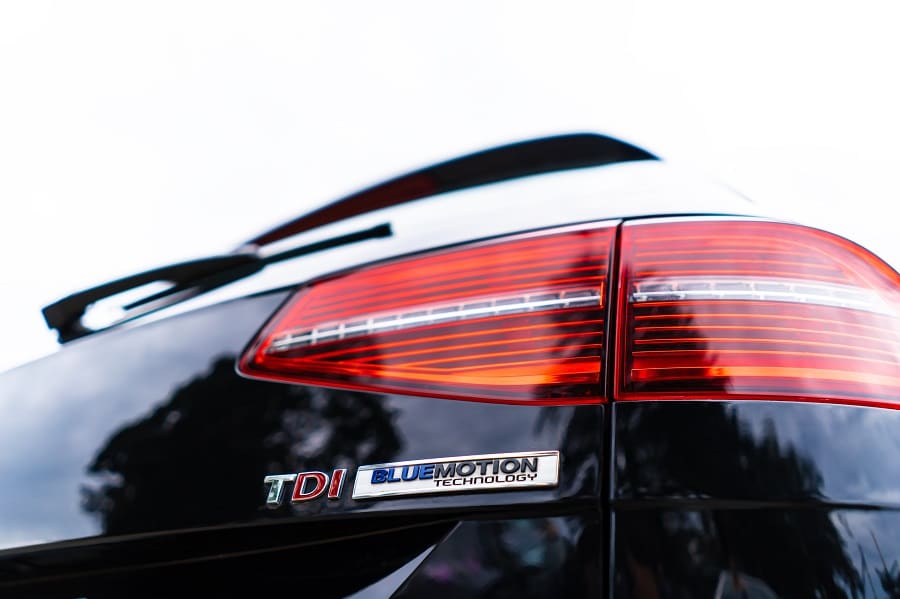
Updates and corrections that Volkswagen has made, and which since June 2021 are installed on every model that leaves the factory equipped with the 4-cylinder TDI engine. Volkswagen therefore focuses on synthetic diesel, making all its models equipped with 2.0 TDI produced from the 25th week of 2021 suitable for biodiesel. But why? The Volkswagen Group believes in synthetic fuels as an alternative to electric mobility. He proved it with Porsche, which opened a factory in Chile for the production of synthetic gasoline which powers the Porsche Supercup’s 911 GT3 Cups, and proves it again with this very interesting twist, which opens up the possibility of running on biodiesel for all 4-cylinder TDI.
But what is synthetic diesel, and why does Volkswagen believe in it so much?
But what is synthetic diesel, and why does Volkswagen believe in it so much? Without getting too technical, synthetic diesel, also known as biodiesel, it is a fuel obtained from vegetable oils such as sunflower, canola, or used cooking oil. Once filtered and treated with different chemical processes, what is obtained is a fuel similar in terms of heat yield, color and viscosity to traditional diesel. The only difference, as mentioned, is the greater solvent capacity, which can be solved with more robust components.
However, biodiesel has a huge main problem: production starts from food raw materials. This would create, in the event of its worldwide diffusion, a huge humanitarian problem, with vegetable crops dedicated to transport and not to human and animal nutrition. How to solve this problem? With so-called paraffinic diesels. This type of synthetic diesel, used and sponsored by Volkswagen, is always a diesel of renewable and clean origin, but it is no longer extracted from “virgin” plants, so to speak.
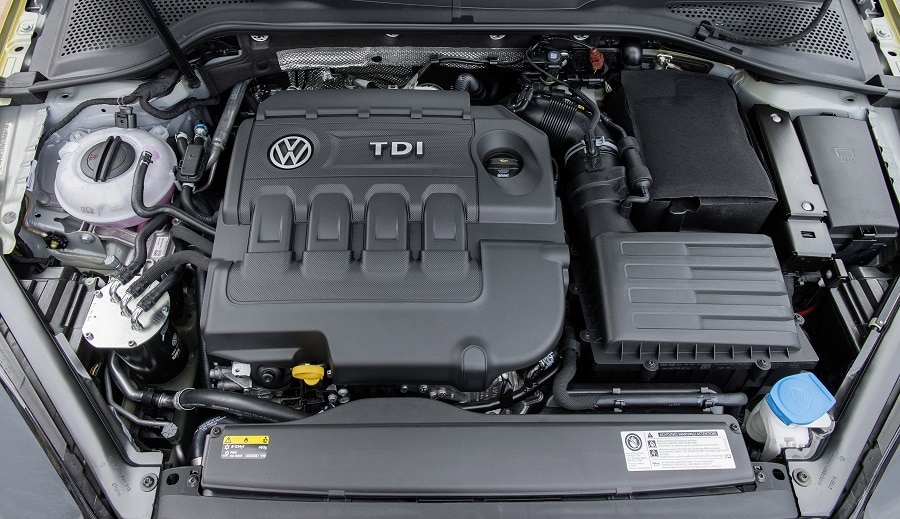
The HVO, hydrotreated vegetable oil is one of the main paraffinic gas oils, and is extracted from waste from the production of vegetable oils, food waste and exhausted oils and fats used for frying and cooking food. Once collected, these wastes are treated to obtain a clean and that fuel gives value to waste materials, that without this ploy would have simply been thrown away.
But how clean is this diesel? Well, quite a lot. Volkswagen defines synthetic diesel as “fuel with a near zero environmental footprint”. The data collected by the House and other authoritative studies speak of a savings in CO2 emissions ranging between 70 and 95% compared to traditional diesel coming from fossil fuels. Volkswagen believes in synthetic diesel like help its electric cars to achieve carbon neutrality, in the “Way To Zero” path which will lead the company to be 100% carbon neutral by 2050.
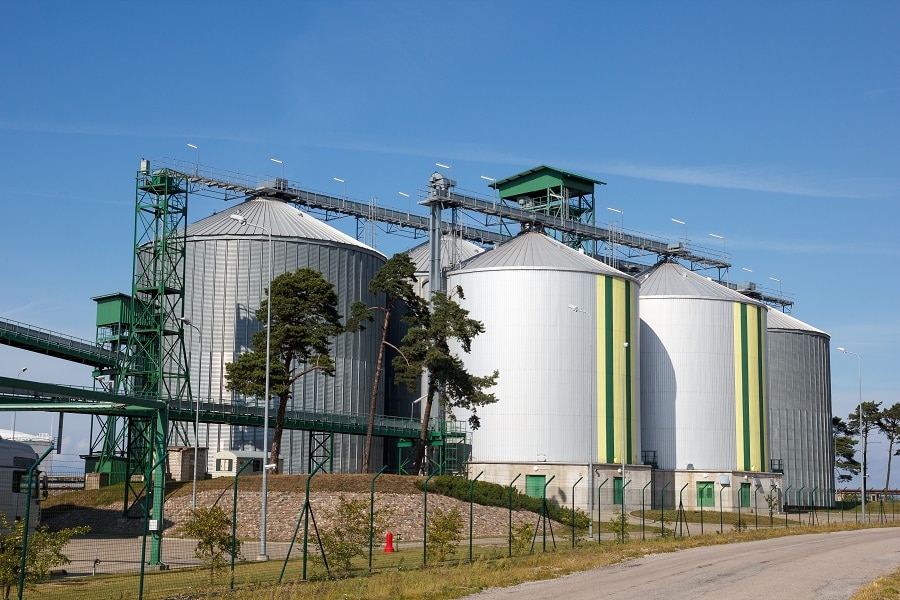
Volkswagen’s optimism and investment also shines through in the words of the Prof. Thomas Garbe, Director of Volkswagen’s Petrol and Diesel Fuels Division. “Through the use of environmentally friendly fuels in approved Volkswagen models, we will enable customers across Europe to significantly reduce their CO2 emissions as soon as these fuels are available locally. For example, the use of paraffinic fuels is a pragmatic possibility for companies with a fleet made up of a mix of electric and traditional vehicles. “
Could there be a future for internal combustion engines thanks to paraffinic diesel? What are the limits of synthetic diesel?
From these words, it seems that Volkswagen has found the fuel of the future in synthetic diesel. But is it really so? Well, like everything in this crazy world, synthetic diesel isn’t perfect. While this fuel eliminates the ethical and food issues of traditional biodiesel, HVO also has its flaws. First of all, although there is a drastic reduction of CO2 emitted, from the first tests carried out on cars powered by paraffinic diesel it emerges that these fuels, when used, emit greater quantities of nitrogen oxides. However, if this problem can be contained with the use of even more aggressive filters than those seen on today’s diesel cars, the HVO has two major problems to solve.
The first concerns the taxation. Not coming directly from oil and not being a form of fuel directly taxed by governments, a way should be found to tax this fuel, with the possibility of making it uneconomical. The second and more serious criticality is that linked to production. Those who already use HVO in their fuels, such as Eni inserting it in their Diesel +, have been severely criticized for the production methods. How come? Simple: within the HVO used by Eni there is thePalm oil. To obtain it, Eni financed huge works by deforestation. Net of drain cleaning, this practice obviously becomes unsustainable.
How then? On paper, the synthetic diesel proposed by Volkswagen is the perfect solution to combine the thermal engine with the advancement of the electric. Once the production problems have been solved, in fact, there are very few contraindications to the use of this fuel. Volkswagen is already confident: the House of Wolfsburg in fact believes that within 10 years the share of the market using this fuel could rise by 30%. We then found the solution to make the heat engine green and renewable? Maybe, or maybe not. Certainly, however, we appreciate that Volkswagen like other manufacturers continue the developments, without indulging in the monopoly of electric mobility. We really can’t wait to see what comes next. Who knows that the heat engine may not really stay with us in the end …






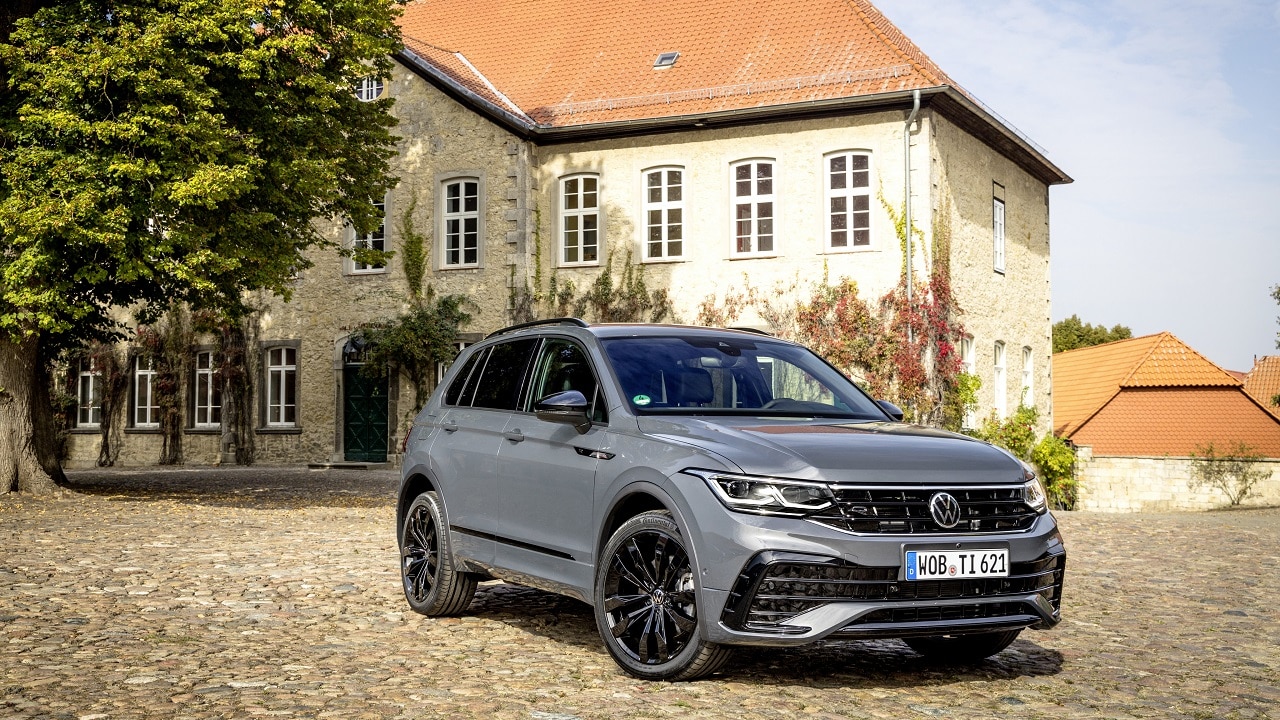





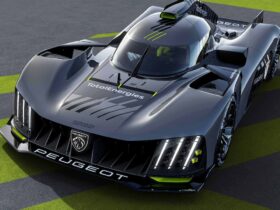
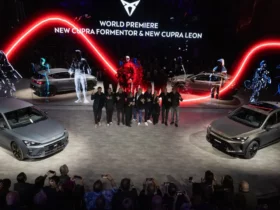
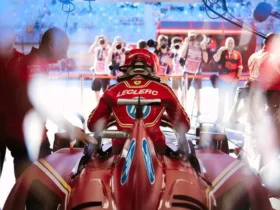

Leave a Reply
View Comments